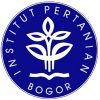Objective
Title of the Degree Programme
CAPTURE FISHERIES TECHNOLOGY AND MANAGEMENT (CFTM)
Educational Programme
CFTM program is dedicated to bring in human resources competent in fishery utilization through the development of sustainable environmental friendly fishing science and technology, including fishing gear, fishery resources exploitation technology, fishing vessels and transport, capture fisheries policy, capture fisheries and fishing port management. Alumni of FMT major are aimed to be professionals, not only as managers and policy makers in regional and central level fishery, academics and scientist in a college or institute of higher education, but also as well as enterpreneurs.
CFTM major program is intended for highschool graduates from Indonesian provinces and abroad. Selections are carried out through USMI (report selection), SNMPTN (national selection), UTMI (internal selection) and BUD (Local Government Invitation). Annually it admits a total of 80-90 students. Currently there are more than 300 students on CFTM Major.
Objectives and Learning Outcomes of a Degree Programme
- Programme Objectives
The Undergraduate Program in Capture Fisheries Technology and Management at the Faculty of Fisheries and Marine Sciences, IPB University, focuses its objectives to bring in graduates that are capable to become professionals, working in fishing industry, government or as enterpreuners. The objectives of the CFTM are to bring in graduates with the following qualifications:
- Master the knowledge and understanding the field of capture fisheries as it is demanded by fishing industry, public services and entrepreneurship
- Possess skills in utilizing knowledge, technology and policies in solving capture fisheries problems that are relevant to industry, government and entrepreneurship
- Able to handle open and complex problems in the field of capture fisheries, especially by considering technical, socio-economic, cultural and business aspects
- Demonstrate the ability to adapt and grow independently and compete globally
- Demonstrate compliance with ethics and professionalism at work
- Learning Outcomes
The CFTM sets the following learning outcomes (LO) that are expected from the graduates:
- Know and understand the basic science such mathematics, statistics, informatics and social applications in the field of captured fisheries.
- Know the concepts and able to apply knowledge related to the fisheries and marine sciences, including the knowledge on fish morphology and physiology, oceanography, aquatic ecology, the basics of capture fisheries, the basics of aquaculture, the basics of processing marine products, and fisheries socioeconomic.
- Know and understand the science and technology in the field of capturing fisheries which includes fishing gear, fishing technology, fishing vessels, fisheries ports, management of fishing operations, policies and regulations
- Know and understand the policies and regulations related to captured fisheries
- Able to collect and analyze data & information and use it for appropriate decision making in capture fisheries
- Able to apply various analytical methods to solve the problem of capture fisheries
- Qualified to plan and conduct scientific activities, interpret the data and draw conclusions
- Able to pursue literature and appropriate data sources.
- Able to identify, analyze problems and provide alternative technical solutions in capture fisheries
- Able to apply science & technology and provide alternative technical solutions in capture fisheries.
- Able to carry out fisheries management actions
- Able to select, apply and develop appropriate devices, processes and methods in capture fisheries
- Recognize the technical, and work safety in the field of capture fisheries
- Able to be responsible for work assigned professionally in the scope of capture fisheries techniques and management
- Able to work effectively in the field of capture fisheries according to existing operational standards
- Qualified to apply different methods to communicate effectively with the scientific community and society
- Able to adapt to the work environment and the surrounding community.
- Recognise the necessity of independent life-long learning
- Able to communicate well in writing as well in speaking
- Competences
The particular goal of the CFTM is to bring in graduates whose field of expertise is the utilization of fishery resources. The undergraduate program bring in fisheries graduates that could elaborate, identify, and implements environmental friendly fishery utilization science, technology and art as a real effort in the field.
Furthermore, the special characteristics and competences of the curricullum at the programme are as followed:
- Operates fishing units
- Design fishing gear
- Design fishing vessels and its equipment and the navigation system
- Developfishing technology
- Comprehend of fishing ground to optimize fish catching
- Design the system of fisheries industry
- Implement fishing port knowledge within fisheries business system
- Implement fishing port planning techniques
- Conduct underwater monitoring and observation activities
- Assess fishery resources management policy

